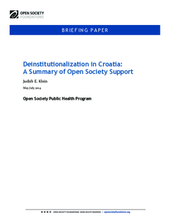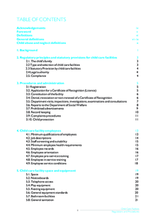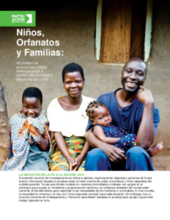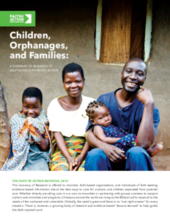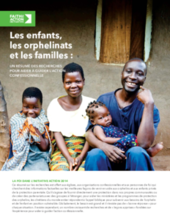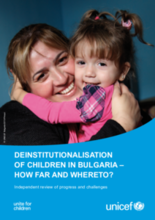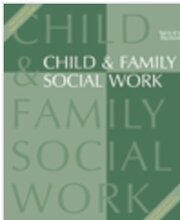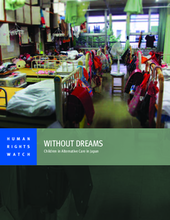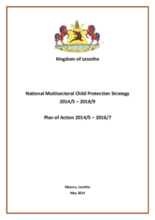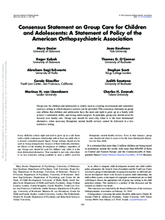Displaying 1181 - 1190 of 1511
This paper examines the benefits and challenges of de-institutionalizing disability residential services in Croatia through Open Society Foundation’s Mental Health Initiative (MHI).
This document contains a set of regulations and procedures which the Zambian Government has established as the “Minimum Standards of Care for Child Care Facilities.”
El presente resumen de investigaciones se ofrece a iglesias, organizaciones religiosas y personas de fe que buscan información basada en pruebas sobre la mejor manera de cuidar a huérfanos y niños separados del cuidado parental.
This Summary of Research provides a concise overview of a range of studies and findings that can inform approaches to caring for children who, through orphanhood, abandonment, or other causes, have been separated from parental care.
Ce résumé sur les recherches est offert aux églises, aux organisations confessionnelles et aux personnes de foi qui cherchent des informations factuelles sur les meilleures façons de venir en aide aux orphelins et aux enfants privés de la protecti
This Review, commissioned by UNICEF Bulgaria, is aimed at informing the recommendations for the Bulgarian Government’s Action Plan for the implementation of the National Strategy ‘Vision for Deinstitutionalisation of Children in Bulgaria.’
Many young people rely on their parents when they transition into adulthood. Young people transitioning out of alternative care rarely have that option.
This report by Human Rights Watch examines Japan’s alternative care system for children. It describes its organization and processes, presents current data on the use of different forms of alternative care and highlights the problems found in the institutionalization of most children (including infants), as well as abuses that take place in the system.
This document presents the Kingdom of Lesotho's National Multisectoral Child Protection Strategy 2014–2018 and a Costed Plan of Action for 2014-2016. The document is a more detailed operational document, setting out a road map for actions from July 2014 through to March 2017.
This statement of policy of by American Orthopsychiatric Association reviews the evidence on the use of congregate or group care for children and adolescents and concludes that institutional care is nonoptimal for children of all ages, including teenagers, and that even smaller group care settings can be detrimental to the growth and well-being of youth.

